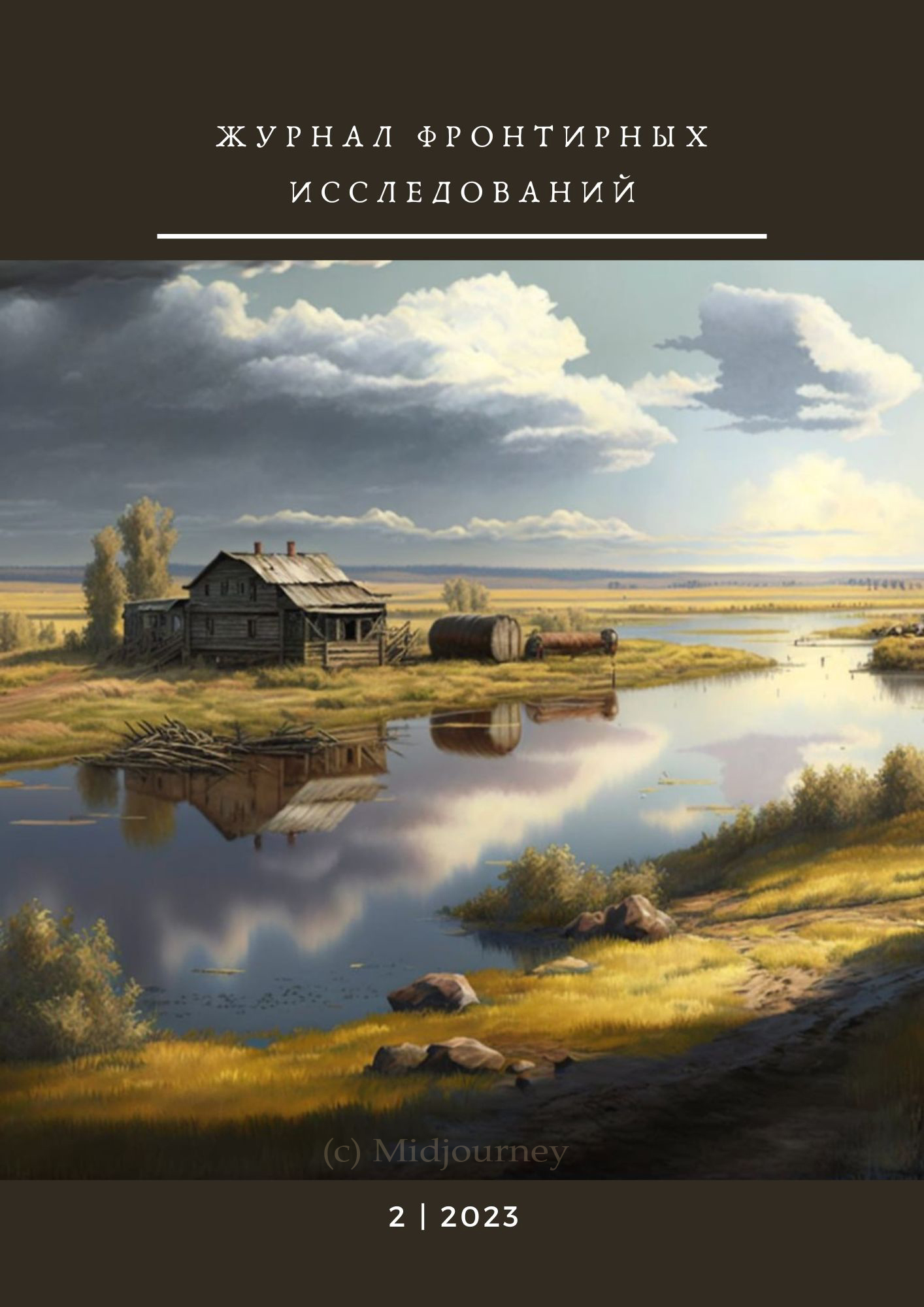Abstract
The article examines how English and Russian speakers perceive going beyond the boundaries of ethno-cultural and ethno-racial identity, specifically in relation to pejorative vocabulary related to the conceptual field of hybrid identity, which includes pejorative names for subjects and results of hybridization. The study used the online Racial Slur Database (rsbd.org) as the source of English-language material, while the Russian-language material was collected empirically due to the lack of a corresponding database on the World Wide Web.
The article attempts to identify the main models for naming subjects and results of hybridization in order to compare the image of this phenomenon in the English and Russian collective worldviews, and to understand the origins of a negative attitude towards violators of the boundaries between “Own” and “Alien”.
The study concludes that while there are some similar models used in constructing pejoratively marked vocabulary of this kind, there is also a significant difference between the schemes for constructing such names in the analyzed languages. Finally, the article attempts to understand the linguistic, historical, and cultural reasons for the quantitative disproportion between the English and Russian xenopejorative lexical fund belonging to the conceptual field of hybrid identity.
References
Aitmatov, Ch. T. (1981). The Buranny Railway Stop: The Day Lasts More Than a Hundred Years. Roman-Gazeta. (In Russian).
Bataille, J. (2003). Prohibition and Transgression (E. Gerasimova, Trans.). http://vispir.narod.ru/bataj2.htm (In Russian).
Danilchenko-Danilevskaya, V. J. (2008). Appendix: Family chronicle of the family of Nikolai Yakovlevich Danilevsky. In O. Platonov (Ed.), Russia and Europe (pp. 715–727). Institute of Russian Civilization. (In Russian).
Dictionary of youth slang. (n. d.). https://slang.su/ (In Russian).
Efremova, T. F. (n. d.). Explanatory Dictionary of the Russian Language. Gufo.me. https://gufo.me/dict/efremova/%D1%80%D0%B0%D1%81%D0%B0 (In Russian).
Elistratov, V. S. (n. d.). Explanatory Dictionary of Russian Argot. Gufo.me. https://gufo.me/dict/russian_argot (In Russian).
Foucault, M. (1996). The Will to Truth: Beyond Knowledge, Power and Sexuality. Works from different years. Castal. (In Russian).
Gobineau, J. A. (1881). An Essay on the Inequality of the Human Races. https://litresp.ru/chitat/ru/%D0%93/gobino-zhozef-artyur-de/opit-o-neravenstve-chelovecheskih-ras (In Russian).
Guseinov, G. Ch. (2003). Materials for the Russian Dictionary of Social and Political Language of the 20th Century: Vol. 1: DSP. Three squares.. (In Russian).
Kuznetsov, Y. V. (2011). Historical Fate of Russia in Danilevsky's Teaching on Cultural and Historical Types. Bulletin of Murmansk State Technical University, 14(2), 347–352. (In Russian).
Lévi-Strauss, C. (2006). Mythologiques. Vol. 1: The Raw and the Cooked,. Flyuid. (In Russian).
Lysenko, V. G. (2009). Cognition of Alien as a Way of Self-Knowledge: West, India, Russia (An Attempt at Xenology). Voprosy Filosofii, 11, 61-77. (In Russian).
Michurin, V. A., & Gumilev, L. N. (1993). Dictionary of Concepts and Terms of L.N. Gumilev's Theory of Ethnogenesis. In Ethnosphere: History of People and History of Nature (pp. 493–542). Ekopros. (In Russian).
Oxford Advanced American Dictionary. (n. d.). https://www.oxfordlearnersdictionaries.com/definition/american_english/race_1
Potebnya, A. A. (1989). Thought and Language. In The Word and the Myth (pp. 17–200). Pravda. (In Russian).
Romanova, A. P., Khlyscheva, E. V., Yakushenkov, S. N., & Topchiev, M. S. (2013). Alien and Cultural Security. ROSSPEN. (In Russian).
Savinova, V. V. (2021). The Problem of Cultural Appropriation in the Modern World (Late 1970s-Early 2020s). https://nauchkor.ru/uploads/documents/60eb0818e4dde500016d351d.pdf (In Russian).
Shevchenko, O. M. (2013). Ideological Identity and Xenophobia in the Age of Soviet Modernity. Socio‑Humanitarian Knowledge, 11, 166-174. (In Russian).
The Racial Slur Database. (n. d.). http://www.rsdb.org/
Tlostanova, M. V. (2006). Transculturation as a New Episteme of the Globalization Era. Bulletin of the Peoples' Friendship University of Russia. Series: Philosophy, 2, 5–16. (In Russian).
Tsebrovskaya, T. A. (2017). Ethnocentrism and Racocentrism in the American Language Picture of the World. Proceedings of the St. Petersburg State University of Economics, 6, 110–113. (In Russian).
Tsebrovskaya, T. A. (2020). Component Peculiarities of Derogatively Marked Ethnonyms Formed Via Abbreviation. Baltic Humanitarian Journal, 9(2), 327–329. https://doi.org/10.26140/bgz3-2020-0902-0080 (In Russian).
Usovskaya, E. A. (2020). Studies of Cultural Hybridization in the Postmodern. In Actual Problems of Humanitarian Education: Materials of the VII International Scientific-Practical Conference, Minsk, October 22-23, 2020. 2020 г. (pp. 46–51). BSU. (In Russian).
Yakushenkova, O. S. (2014). The Image of the Alien in Heterotopic Frontier Spaces [PhD Thesis]. Astrakhan State University. (In Russian).
Zakharov, V. N. (2013). Dostoevsky's Artistic Anthropology. Issues of Historical Poetics, 11, 150-164. (In Russian).

This work is licensed under a Creative Commons Attribution 4.0 International License.

